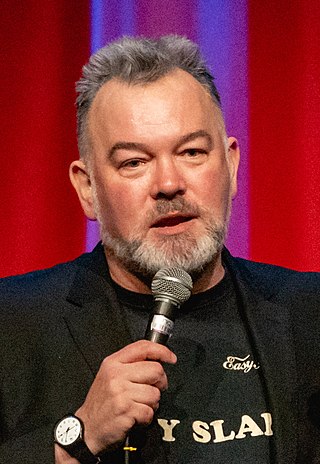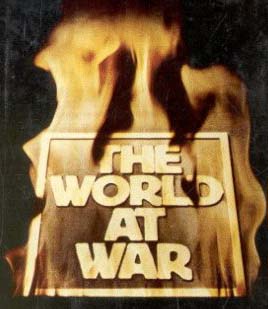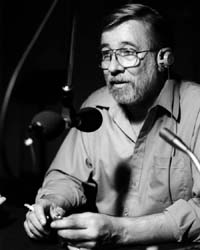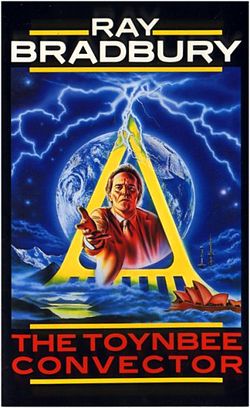Related Research Articles

Arnold Joseph Toynbee was an English historian, a philosopher of history, an author of numerous books and a research professor of international history at the London School of Economics and King's College London. From 1918 to 1950, Toynbee was considered a leading specialist on international affairs; from 1924 to 1954 he was the Director of Studies at Chatham House, in which position he also produced 34 volumes of the Survey of International Affairs, a "bible" for international specialists in Britain.

A Study of History is a 12-volume universal history by the British historian Arnold J. Toynbee, published from 1934 to 1961. It received enormous popular attention but according to historian Richard J. Evans, "enjoyed only a brief vogue before disappearing into the obscurity in which it has languished." Toynbee's goal was to trace the development and decay of 19 or 21 world civilizations in the historical record, applying his model to each of these civilizations, detailing the stages through which they all pass: genesis, growth, time of troubles, universal state, and disintegration.

Stewart Graham Lee is an English comedian. His stand-up routine is characterised by repetition, internal reference, and deadpan delivery.

The World at War is a 26-episode British documentary television series that chronicles the events of the Second World War. It was produced in 1973, at a cost of £900,000, the most expensive factual series ever produced. It was produced by Jeremy Isaacs, narrated by Laurence Olivier and included music composed by Carl Davis. The book, The World at War, published the same year, was written by Mark Arnold-Forster to accompany the TV series.

The Toynbee tiles, also called Toynbee plaques, are messages of unknown origin found embedded in asphalt of streets in about two dozen major cities in the United States and four South American cities. Since the 1980s, several hundred tiles have been discovered. They are generally about the size of an American license plate, but sometimes considerably larger. They contain some variation of the following inscription:

Sydney Cecil Newman was a Canadian film and television producer, who played a pioneering role in British television drama from the late 1950s to the late 1960s. After his return to Canada in 1970, Newman was appointed acting director of the Broadcast Programs Branch for the Canadian Radio and Television Commission (CRTC) and then head of the National Film Board of Canada (NFB). He also occupied senior positions at the Canadian Film Development Corporation and Canadian Broadcasting Corporation, and acted as an advisor to the Secretary of State.

Peter John Gzowski, known colloquially as "Mr. Canada", or "Captain Canada", was a Canadian broadcaster, writer and reporter, most famous for his work on the CBC radio shows This Country in the Morning and Morningside. His first biographer argued that Gzowski's contribution to Canadian media must be considered in the context of efforts by a generation of Canadian nationalists to understand and express Canada's cultural identity. Gzowski wrote books, hosted television shows, and worked at a number of newspapers and at Maclean's magazine. Gzowski was known for a friendly, warm, interviewing style.

Scottish Television is the ITV network franchisee for Central Scotland. The channel — the largest of the three ITV franchises in Scotland — has been in operation since 31 August 1957 and is the second-oldest franchise holder in the UK that is still active.
Peter Watkins is an English film and television director. He was born in Norbiton, Surrey, lived in Sweden, Canada and Lithuania for many years, and now lives in France. He is one of the pioneers of docudrama. His films present pacifist and radical ideas in a nontraditional style. He mainly concentrates his works and ideas around the mass media and our relation/participation to a movie or television documentary.

"The Toynbee Convector" is a science fiction short story by American writer Ray Bradbury. First published in Playboy magazine in 1984, the story was subsequently featured in a 1988 short story collection also titled The Toynbee Convector.

David John Tennant is a Scottish actor. He was the tenth incarnation of the Doctor in the sci-fi series Doctor Who, returning to the show as the fourteenth incarnation of the character in 2022. His other notable screen roles include DI Alec Hardy in the crime drama series Broadchurch (2013–2017), Kilgrave in the superhero series Jessica Jones (2015–2019), and Crowley in the fantasy series Good Omens (2019–present).
Tony Burman is a Canadian broadcaster, journalist and university official. Starting in the 1960s, Burman has worked as a journalist, in print, radio, television, and online. For most of this time, he was at the Canadian Broadcasting Corporation. Later he joined Al Jazeera English. He is also active in supporting public broadcasting and investigative journalism.

Planet Earth is a 2006 British television series produced by the BBC Natural History Unit. Five years in the making, it was the most expensive nature documentary series ever commissioned by the BBC and also the first to be filmed in high definition. The series received multiple awards, including four Emmy Awards, a Peabody Award, and an award from the Royal Television Society.

Arnold is a masculine German, Dutch and English given name. It is composed of the Germanic elements arn "eagle" and wald "power, brightness". The name is first recorded in Francia from about the 7th century, at first often conflated with the name Arnulf, as in the name of bishop Arnulf of Metz, also recorded as Arnoald. Arnulf appears to be the older name, and German (Frankish) Arnold may have originally arisen in c. the 7th century as a corruption of Arnulf, possibly by conflation of similar names such as Hari-wald, Arn-hald, etc.
A Choice of Futures was a Canadian television miniseries which aired on CBC Television in 1967.
Our Fellow Americans is a Canadian documentary television miniseries which aired on CBC Television in 1976.
Profile is a Canadian biographical television series which aired on CBC Television from 1955 to 1957.
Program X is a Canadian anthology television series which aired on CBC Television from 1970 to 1973.
Images of Canada was a Canadian documentary television miniseries which aired on CBC Television occasionally from 1972 to 1976.
References
- ↑ Corcelli, John (September 2005). "People of Our Times". Canadian Communications Foundation. Archived from the original on 10 October 2006. Retrieved 7 May 2010.